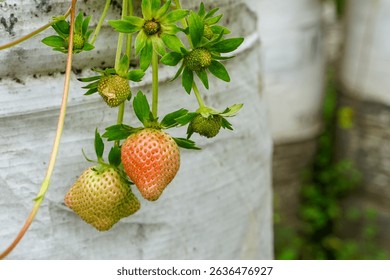
Strawberry Skies: Growing Sweet Berries Up, Not Out!
Is there anything quite as delightful as the taste of a sun-ripened, juicy strawberry, plucked straight from the vine? Imagine bringing that joy to your own home, even if you don't have a sprawling garden. With vertical gardening, you can enjoy fresh, homegrown strawberries on your patio, balcony, or even a sunny windowsill! Vertical strawberry gardens are not only space-saving and easy to harvest from, but they also add a touch of whimsical charm to any living space. Say goodbye to limited gardening space and hello to an abundance of sweet, red berries!
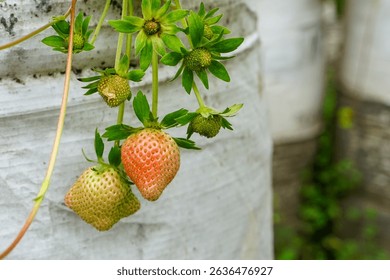
Choosing Your Strawberry Stars
Not all strawberry varieties are created equal when it comes to vertical gardening. Here are two fantastic options that thrive in containers and offer delicious rewards:
'Albion': This everbearing strawberry is a true star! Known for its large size and incredibly sweet flavor, 'Albion' produces consistently throughout the growing season. Its sturdy plants handle container life beautifully, making it perfect for a vertical setup. You'll be amazed by the abundance of juicy berries this variety offers.
'Seascape': If you're looking for a day-neutral variety with excellent heat tolerance, 'Seascape' is your go-to. This robust plant delivers a consistent harvest of flavorful strawberries, regardless of the day length. Its adaptability makes it a reliable choice for gardeners in various climates.
Building (or Buying!) Your Vertical Oasis
There are several ways to create a stunning vertical strawberry garden. Here are two popular options:
Mr. Stacky Stackable Planters
Mr. Stacky planters offer a simple and effective way to get started with vertical gardening. Here's how to set them up:
- Gather Your Supplies: You'll need Mr. Stacky planters, well-draining potting mix, compost, and your chosen strawberry starts.
- Layer the Soil: In each planter tier, create a mixture of potting mix and compost. The compost will provide essential nutrients for your strawberry plants.
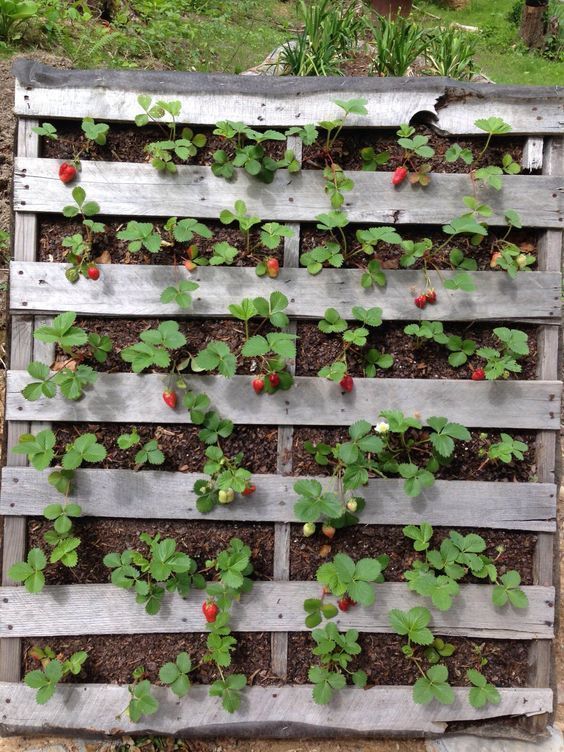
- Plant Your Strawberries: Gently remove the strawberry starts from their containers and plant them in the prepared soil, ensuring the crown (where the leaves emerge) is just above the soil line.
- Stack and Secure: Stack the planters, making sure they are properly aligned and stable.
- Water Thoroughly: Water the entire setup until water drains from the bottom.
Advantages of Stackable Planters:
- Ease of Assembly: Mr. Stacky planters are incredibly easy to assemble, requiring no special tools or skills.
- Modular Design: The modular design allows you to customize the height of your vertical garden to fit your space.
- Space-Saving: Stackable planters maximize vertical space, making them ideal for small patios, balconies, and decks.
Repurposed Pallet Planters
For a rustic and charming touch, consider converting a pallet into a vertical strawberry planter.
- Prepare the Pallet: Choose a sturdy pallet and sand down any rough edges.
- Line with Landscape Fabric: Cut landscape fabric to fit the inside of each section of the pallet, creating individual pockets for soil.
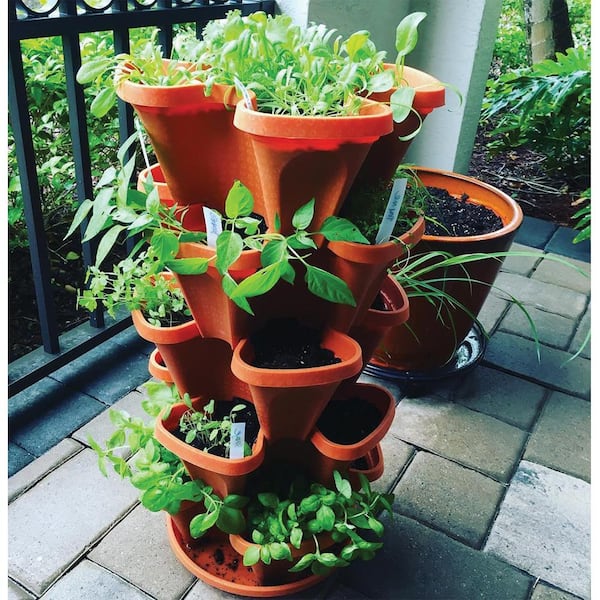
- Secure the Fabric: Use durable staples to securely attach the landscape fabric to the pallet, ensuring no soil can escape.
- Fill with Soil: Fill each pocket with well-draining potting mix amended with compost.
- Plant Your Strawberries: Plant your strawberry starts in the prepared pockets, spacing them appropriately.
The Charm of Repurposed Materials:
Using a repurposed pallet adds a unique, eco-friendly touch to your garden. It's a great way to give old materials new life and create a one-of-a-kind vertical strawberry display.
Planting and Caring for Your Vertical Strawberries
Whether you've chosen Mr. Stacky planters or a pallet planter, the planting and care instructions are similar:
- Spacing: Space your strawberry plants about 8-10 inches apart to allow for adequate growth.
- Watering: Water your vertical strawberry garden regularly, especially during hot, dry weather. The soil should be consistently moist but not waterlogged.
- Fertilizing: Feed your plants with a slow-release organic fertilizer formulated for berries. Follow the package instructions for application rates.
- Sunlight: Strawberries need at least 6-8 hours of sunlight per day to thrive. Place your vertical garden in a sunny location.
Protecting Your Sweet Harvest
Slugs and snails can be a major nuisance for strawberry plants. Here are two effective ways to protect your sweet harvest:
Copper Tape Barrier
Copper tape creates an unpleasant electrical shock for slugs and snails, deterring them from climbing onto your planters.
- Application: Apply copper tape around the base of your Mr. Stacky planters or pallet planter, ensuring a continuous barrier.
- Effectiveness: A continuous copper barrier is crucial for maximum effectiveness. Make sure there are no gaps or breaks in the tape.
Diatomaceous Earth Defense
Diatomaceous earth (DE) is a natural, non-toxic powder made from fossilized algae. It's harmless to humans and pets but deadly to slugs, snails, and other crawling insects.
- Application: Sprinkle food-grade diatomaceous earth around the base of your strawberry plants, creating a barrier.
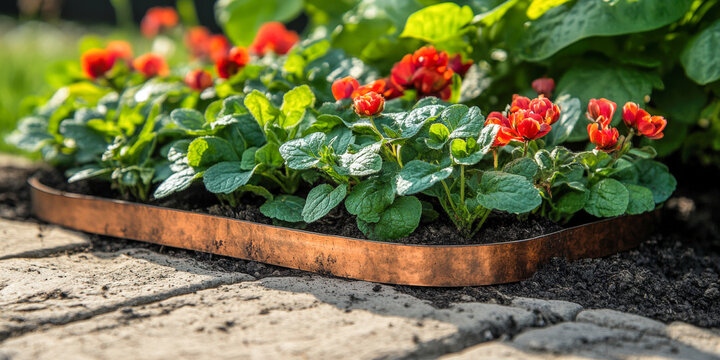
- Reapplication: Reapply DE after rain, as it loses its effectiveness when wet.
- Safety: Use food-grade DE, which is safe for pets and beneficial insects when used correctly.
Quenching Their Thirst
Maintaining consistent moisture levels in a vertical garden can be challenging. Self-watering spikes offer a simple solution.
- How to Use: Insert self-watering spikes into the soil of each planting level. Fill the spikes with water, which will slowly release moisture into the soil.

- Choosing the Right Size: Select self-watering spikes that are appropriately sized for your planters.
- Refilling: Refill the spikes every 2-3 days, depending on the weather and the moisture levels of the soil.
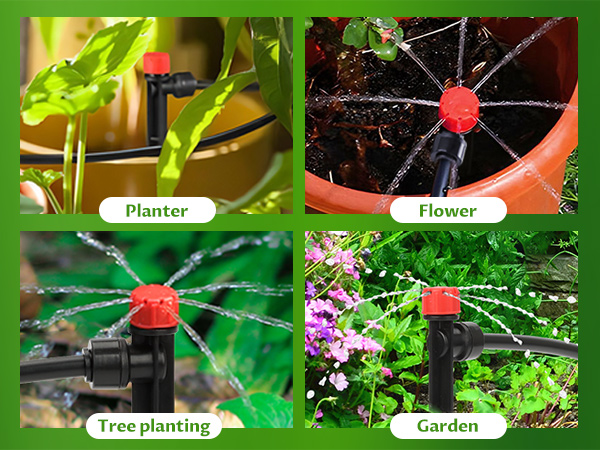
Growing strawberries vertically is an easy and rewarding way to enjoy fresh, homegrown berries, no matter the size of your garden. From choosing the right varieties to building your vertical oasis and protecting your harvest, these tips will set you on the path to strawberry success. So, why not give it a try? Imagine the sweet taste of success and the joy of sharing your homegrown berries with family and friends.
Share your vertical strawberry garden photos with us using #StrawberrySkiesBHH!